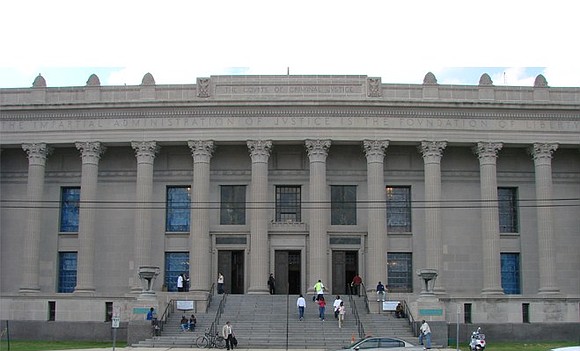U.S. District Judge Rules Orleans Criminal Court Can No Longer Jail Anyone for Failing to Pay Fines or Fees Without Neutral Hearing
Style Magazine Newswire | 8/6/2018, 2:42 p.m.

by John Simerman via theadvocate.com
Everyone who owes fines and fees from criminal convictions in Orleans Parish must have the chance to plead poverty in a “neutral forum” before landing in jail for failing to pay, a federal judge ruled Friday.
Barring an appeal, the ruling from U.S. District Judge Sarah Vance marks the end of a three-year legal battle over the so-called “debtors’ prison” lawsuit brought by a handful of criminal convicts who were jailed for days or longer in Orleans Parish without a chance to prove they couldn’t afford to pay the fines and fees they owed.
Vance broadened the scope of the case Thursday with a 35-page order granting class-action status to anyone who owes court-issued fines and fees now or in the future.
On Friday, Vance declared that “undisputed evidence” shows the 13 judges of Orleans Parish Criminal District Court have “a policy or practice of not inquiring into criminal defendants’ ability to pay before those individuals are imprisoned for nonpayment of court debts.”
She also declared that the judges have an “institutional conflict of interest” in making such poverty determinations themselves. That’s because the proceeds from fines and fees go directly to the court’s Judicial Expense Fund, a kitty controlled by the judges that can be used for a broad range of judicial expenses. Fines and fees have contributed about $1 million a year to the court’s coffers.
Vance ruled that the court’s failure to “provide a neutral forum for determination of such persons’ ability to pay is unconstitutional.” The decision appears to leave it up to the court to decide how to set up a mechanism for such decisions.
Vance telegraphed her final ruling with a preliminary decision on key issues in the case in December.
On Friday, she cited a 1983 U.S. Supreme Court decision that found the 14th Amendment to the U.S. Constitution bars states from arresting or detaining a defendant solely for failing to pay court costs, without determining if that failure was willful.
For years, the Orleans Parish court’s collections department — and individual judges — routinely issued arrest warrants for people who failed to pay fines and fees assessed after a conviction. Civil rights groups claimed that practice created an “unconstitutional and unjust modern debtors’ prison.”
In response to the legal attack, court officials recalled thousands of arrest warrants issued solely on the basis of unpaid fines or fees, writing off about $1 million in debts in the process.
Other warrants remain in place, such as those involving failure to appear in court or lapsed restitution payments to victims. Vance settled most of the issues from the federal lawsuit in December. But on Thursday, she ruled that her decision applies to a broad class of people: everyone who now owes money from fines and fees, and everyone who will incur those debts in the future.
However, she threw out a separate claim by the plaintiffs, who argued that it is unconstitutional to jail people who fail to pay criminal fines when those who owe fines from civil judgments don’t face the same threat.
Regardless, attorneys for the plaintiffs claimed a big win Friday.
“This is a victory for the people of New Orleans and for those committed to fixing the breaks in the criminal justice system,” said Kristen Clarke, president and executive director of the Lawyers’ Committee for Civil Rights Under Law.
“America treats being poor as a crime, disproportionately victimizing people of color. This ruling ensures that people can no longer be thrown in jail in Orleans Parish for their poverty alone.”



